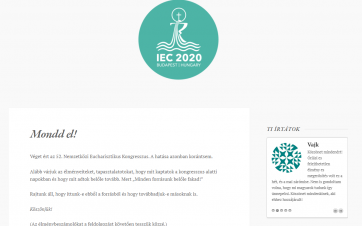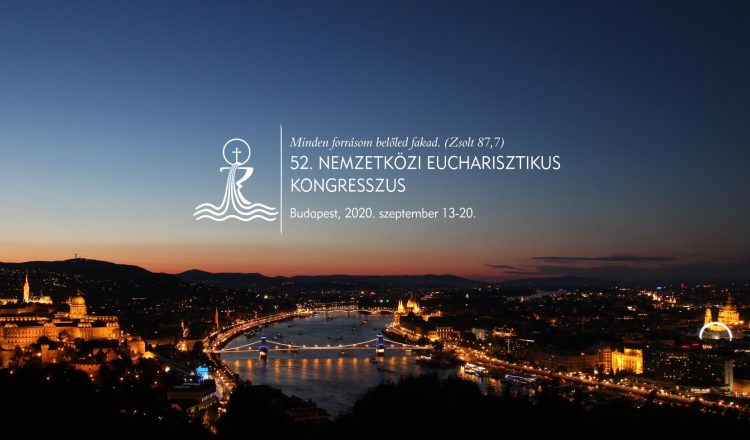
Hungary towards the International Eucharistic Congress

This will be the 52nd in the 150 year-history of Congresses, and it will be celebrated in Budapest from 13 to 20 September 2020. The Hungarian Theological Commission (8 members), presided over by Msgr. Lajos Dolhai, Rector of the Theological College of Eger, member of the International Theological Commission and President of the Theological Commission of the 52nd International Eucharistic Congress, has prepared a document which contains appropriate theological and pastoral reflections. The structure of the document is logical and coherent: There are 15 short chapters around the motto All my springs are in you, which echoes the Lord's words: "Let anyone who is thirsty come to me and drink. Whoever believes in me, as Scripture has said, rivers of living water will flow from within them." (John 7:37-38).
The preparatory document
A short chapter explains the locations where the Second Vatican Council mentions fountain. Chapters 4-8 discuss the Eucharist explicitly, offering a theological-liturgical analysis, collecting the remarks and contributions of today's theology in a systematic way, highlighting that the Eucharist is a fountain as clear as crystal, from which we can draw in the celebration of Holy Mass, receiving Holy Communion and pausing in adoration.
Chapters 9-13 offer pastoral indications in order to deepen the fountain nature of the Eucharist. Concrete examples are mentioned and several names are recalled such as the Servant of God, Cardinal Mindszenty; Blessed László Batthyány-Strattmann, the doctor of the poor; Blessed Vilmos Apor, Bishop of Győr and martyr; and Janos Brenner called the Hungarian Tarcisius, martyr of the Eucharist, who was brutally murdered during the night of 14 December 1957 by the secret police while he was taking the Eucharist to a sick person. He was beatified in Hungary on 1 May 2018. The last two chapters are talking about the Blessed Virgin (Verum corpus natum de Maria Virgine /True Body, born of the Virgin Mary/) and the Eucharist as the centre of the praise of God and the final transformation of the cosmos.
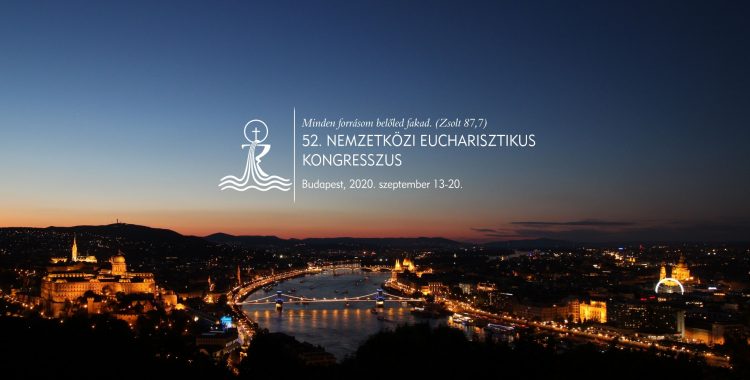
In the introduction the document talks about Hungary, the host country of the Congress. It highlights some aspects of Hungarian history starting with the very deep Christian roots. Recalls the figure of Saint Stephen (1000-1038), the first king of Hungary, who introduced the Hungarian people in the community of the Christian nations of Europe. Among the medieval ruling dynasties, the Arpads gave the largest number of saints to the Catholic Church, nor was there a lack of saints and blessed persons later on, to an extent that the following motto has been created: Our past is our hope, our future is Christ.
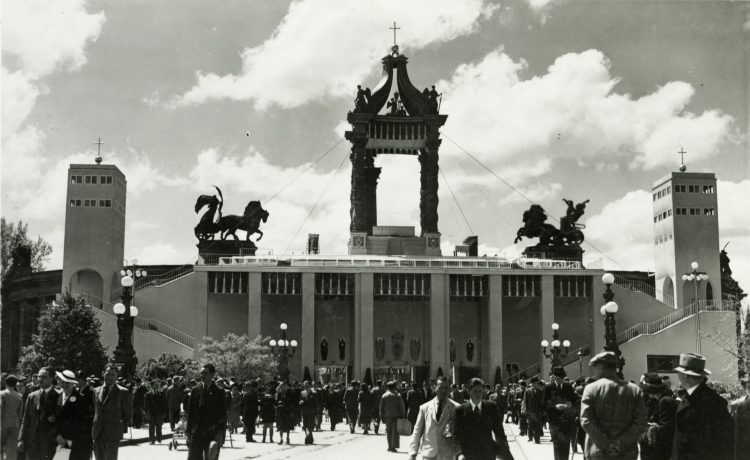
The Congress of 1938
Hungary organized the International Eucharistic Congress in 1938, in a tense and lacerated period, with the motto: Eucharistia, vinculum caritatis /Eucharist, the bond of charity/. The world war disrupted the country and the communism, which came to power in 1947, has brought heavy persecutions. In 1950 religious orders were abolished; many priests and faithful were deported to labor camps or imprisoned. Catholics were continuously harassed and many of them were killed by the servants of the atheist regime. Hundreds of thousands of people fled abroad. Catholic schools were nationalized with the exception of eight famous high schools. Religious practice was prohibited and persecuted; Catholic people had to practice their faith secretly. The communist dictatorship lasted 40 years and the number churchgoers reduced to a minimum level. This way two or three generations grew up without being educated in the Christian faith. Consequently, the majority of the population is ignorant towards religion, indifferent towards the faith and even hostile towards the Church, due to the anticlerical campaign carried out by the former regime.
After 1989, the year of freedom
After 1989 Hungary becomes free. Religious practice revives and many people return to the churches. Kindergardens, elementary schools, high schools and universities of the Catholic Church and other Christian confessions are reopened. Christian values appear in politics and legislation, and faith and moral are introduced in public schools as subjects. New movements come to life and new communities appear. Many churches are reconstructed and new ones are built. The different religious orders come out of hiding and reopen the door of convents. The Church gets back only a part of its goods, but the current leadership does not make an issue of this unlike in some other former communist countries. More and more lay faithful join the active community life at the parishes.
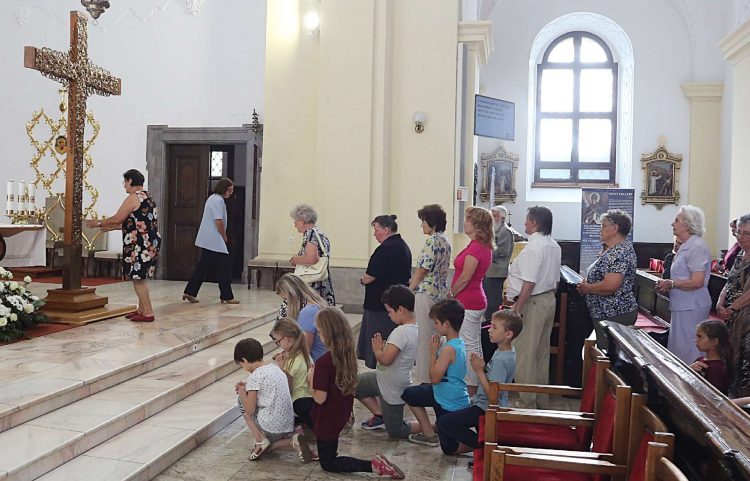
However, many things have changed since 1989 and unfortunately - notes the document - in a negative direction. Let's follow the description: "As in the other post-communist countries, also in Hungary together with the freedom occurred certain phenomena which has weakened the practice of faith and religion: secularization, the search for material well-being, relativism and the uncertainty of agnosticism. The crisis of family life, the strong decline in the number of priestly and religious vocations, the increase in the average age of faithful, the decrease in the number of religious practitioners can be felt in Hungary as well. Hungary has 10 million inhabitants, out of which 7-10% participate in Holy Mass or religious service on Sundays. Furthermore, it is difficult to reach young people beyond a restricted circle. There are few Catholics who practice their faith, this way the presence of the Church in the society is also inefficient. At the same time, more and more adults are looking for the faith, and the answers to life's greatest questions and find them in the Church". "The Congress - we read in the document - is an invitation and an opportunity for the Catholics to strengthen in faith".
A large cross is going around in Hungary which is going to reach in every diocese, and there are many religious and cultural initiatives.
The estimates suggest that about 500 thousand people are going to arrive in Budapest from all over the world.
The state is also doing its own part, headed by Prime Minister Viktor Orbán, by continuous and substantial contributions to the construction of churches (two in Budapest) and the reconstruction of many other churches and Church buildings. "There will be many people coming", says Cardinal Erdő, the Archbishop of Esztergom-Budapest with a smile.
Francesco Strazzari
(Settimana News)




